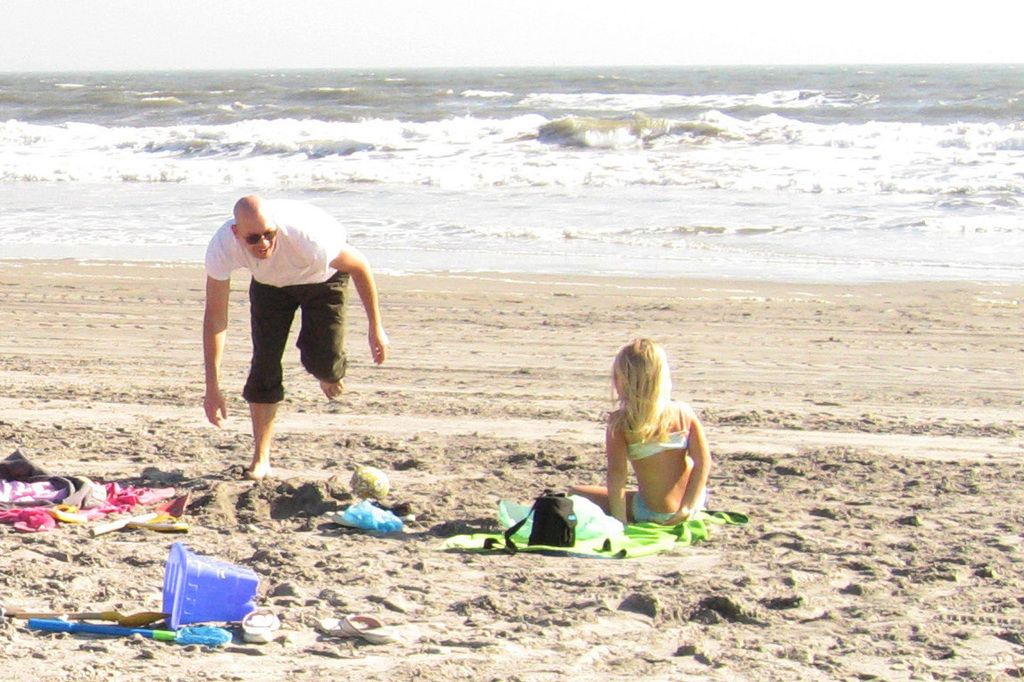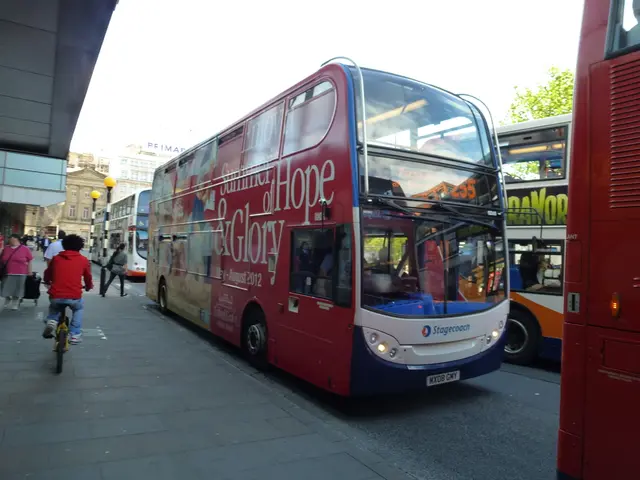Disruption halts North Baltic Canal operations: severe repercussions ensue
Fishin' and Cruisin' on the Kiel Canal Temporarily Halts Shipping Traffic for Three Days
It's a unique scenario where anglers and recreational boaters rule the waves, as shipping traffic on the Kiel Canal comes to a halt for an impressive three days. Over the past few evenings, no ships have been granted entrance to the busiest man-made waterway. The financial implications soar into the millions as a result.
The labor union Verdi took action on the Kiel Canal, utilizing it as leverage during public sector wage negotiations. Ships have been barred from entering the canal at either Brunsbüttel or Holtenau since Monday evening.
This lull in ship traffic leaves considerable income losses for pilots, canal pilots, and shipbrokers. The economic damage from the warning strike is immense, stretching well beyond Schleswig-Holstein's borders. Closing the Kiel Canal for a single day summons a "loss of prosperity" surpassing 1.5 million euros in Germany, according to a 2021 study by the Kiel Institute for the World Economy (IfW).
Struggling Pilots and Canal Pilots
"This strike is biting us hard. Our colleagues are just sitting around waiting for Thursday," says Klaus Peter Molter, chairman of the Association of Canal Pilots. These 125 professionals navigate large ships through the canal, joining the approximately 300 canal pilots from brotherhoods NOK I and II in Brunsbüttel and Kiel, along with ship suppliers and shipbrokers employees. Nearly 3,000 jobs rely on the Kiel Canal's steady flow.
"The clientele isn't exactly thrilled. It affects approximately 70 to 80 ships a day that must now travel around Skagen instead," explains Jan Klein, managing director of the brokerage UCA United Canal Agency. In addition to financial losses, he also highlights another concern. "When the canal is closed, it also leads to higher emissions of climate-damaging CO2. These 70 to 80 ships don't simply halt; they race around Skagen at top speed to maintain their schedules," Klein adds.
Maersk Line shipping company, based in Copenhagen, offers an example of this situation. Its container ship "Laura Maersk" passed through the canal on Monday afternoon as one of the final vessels on its journey from Bremerhaven to Fredericia. The return voyage to Bremerhaven is canceled, as the ship will instead travel from Gothenburg via Skagen instead.
Fewer Civil Servants Fuelling the Strike
"The strike sentiment among members is incredibly strong," states Frank Schischefsky from the Verdi union. With a small number of members, Verdi successfully paralyzes the canal. The decrease in civil servants in system-relevant areas of the Wasserstraßen- und Schifffahrtsamt Nord-Ostsee-Kanal means Verdi has more power to leverage.
This is also the case in the traffic control center in Brunsbüttel, where nautical officers oversee the canal. In previous years, strike calls often fell on deaf ears since almost all positions were staffed with civil servants.
Union official Schischefsky calls on Verdi members at brokers and canal pilots to participate in the strike in solidarity, securing strike pay. "Some colleagues have likely done so, but strike pay fails to compensate for the earnings lost during normal operations," says canal pilot Molter.
"The strike further tarnishes the Kiel Canal's reputation in these tough times," Jens-Broder Knudsen from the Initiative Kiel Canal criticizes.
Navy Sailing through the Canal
The navy's corvette "Emden," which gained recognition after a sabotage attempt, left the Hamburg shipyard early on Monday. Shortly after 8 p.m. Tuesday, it sailed through the canal in Brunsbüttel as one of the last ships.
The canal stands empty, yet not altogether unoccupied. In Kiel and at the eastern end, dredging ships continue to sail. The expansion efforts persist. "Traffic for these vessels doesn't necessitate traffic management," says Jörg Brockmann, spokesperson for the Waterways and Shipping Office North-Ostsee-Kanal.
"The unique scenario serves as a reminder of the importance of the Kiel Canal in the transportation industry, significantly impacting finance and health-and-wellness in the workplace-wellness sector. The halt in shipping traffic not only affects the pilots and shipbrokers who rely on the steady flow of the canal for their income, but also causes a surge in CO2 emissions as ships divert to alternate routes."
"Jan Klein, managing director of UCA United Canal Agency, highlights the financial impact on shipbrokers, stating that approximately 70 to 80 ships a day now face additional expenses and delays as they navigate around Skagen instead, while Maersk Line, a major shipping company, cancels one of its journeys due to the closure."
"In addition to economic concerns, the closure of the Kiel Canal also raises environmental issues, as the increased speed of ships racing around Skagen adds to climate-damaging CO2 emissions. This adds further strain to the canal's already tarnished reputation, as criticisms mount in these challenging times."
"While the navy's corvette 'Emden' sails through the canal as one of the last ships, dredging ships continue their work at either end of the canal, highlighting the ongoing transportation needs in the midst of the work stoppage and the potential future implications for the industry."








